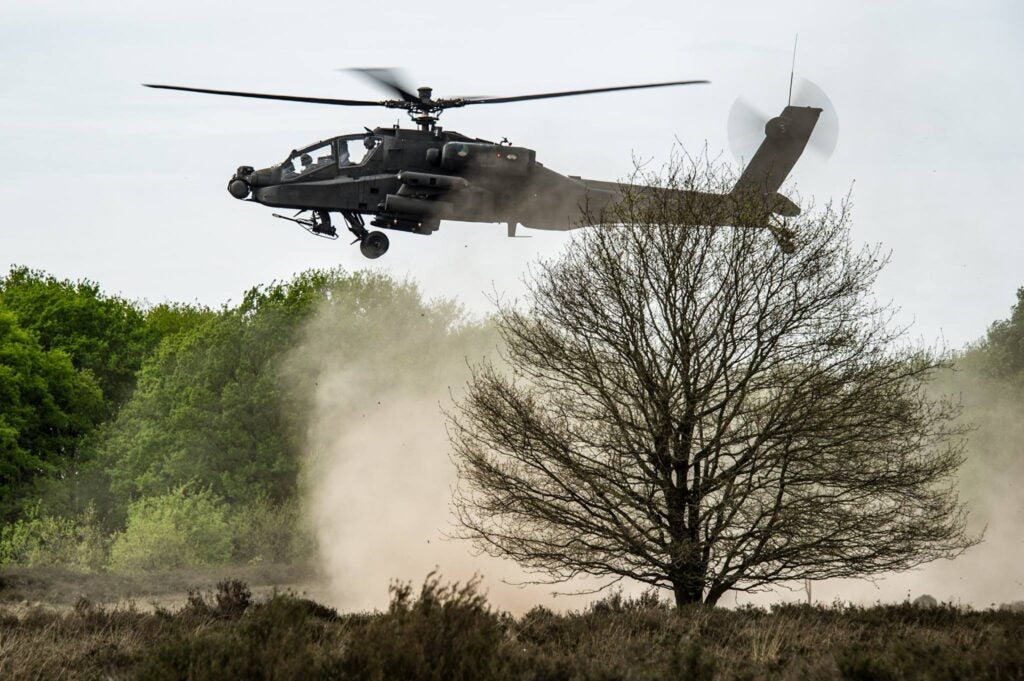Dutch Man Arrested For Shooting At Apache Attack Helicopter
The Royal Netherlands Marechaussee announced on Thursday that its gendarmes had arrested a man from Apeldoorn municipality in the center of the country, on suspicion of shooting at a Royal Netherlands Air Force AH-64 Apache attack helicopter.
A Marechaussee spokesperson told Dutch public broadcaster NOS that the Apache pilot had reported that he had been shot at while in flight late Thursday morning. The helicopter was able to safely land at Gilze-Rijen Air Base after the incident, with the suspect arrested following Marechaussee consultation with the Netherlands Public Prosecution Service.
Marechausee spokesperson Robert von Kapel told the Algemeen Dagblad newspaper that the suspect had been arrested in the evening at his home. The suspect is believed to have fired at the Apache from his home, and is now undergoing questioning. According to von Kapel, the suspect has been charged with “endangering an aircraft” and “destruction”. No motive is known as of writing.
Regional public broadcaster Omroep Gelderland identified the suspect as living in the village of Uddel, in the east of Apeldoorn municipality. Uddel is located in an area regularly used by the Royal Netherlands Air Force to practice low-altitude flight and coordination with Dutch ground troops, one of several such low-flying areas throughout the Netherlands.
The Marechausee is currently investigating what weapon was used to fire on the Apache, and what damage was caused to the attack helicopter. Dutch defense minister Kajsa Ollongren has since said that both Apache crew members are unharmed, adding that it was “very worrying” that the pilots had been fired on in their own country.
The Royal Netherlands Air Force currently operates 28 AH-64s. In 2020, the Air Force launched its Apache Remanufacture program, gradually rebuilding its AH-64Ds into AH-64E v6s. Boeing delivered the first rebuilt Dutch AH-64E in October 2022, with the program planned to be completed in 2025. The remanufacturing program is expected to extend the lifespan of the Dutch Apaches through 2050.

